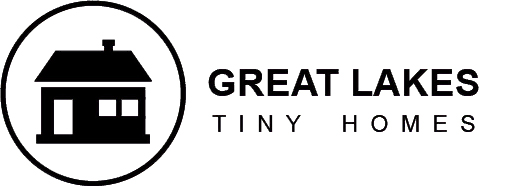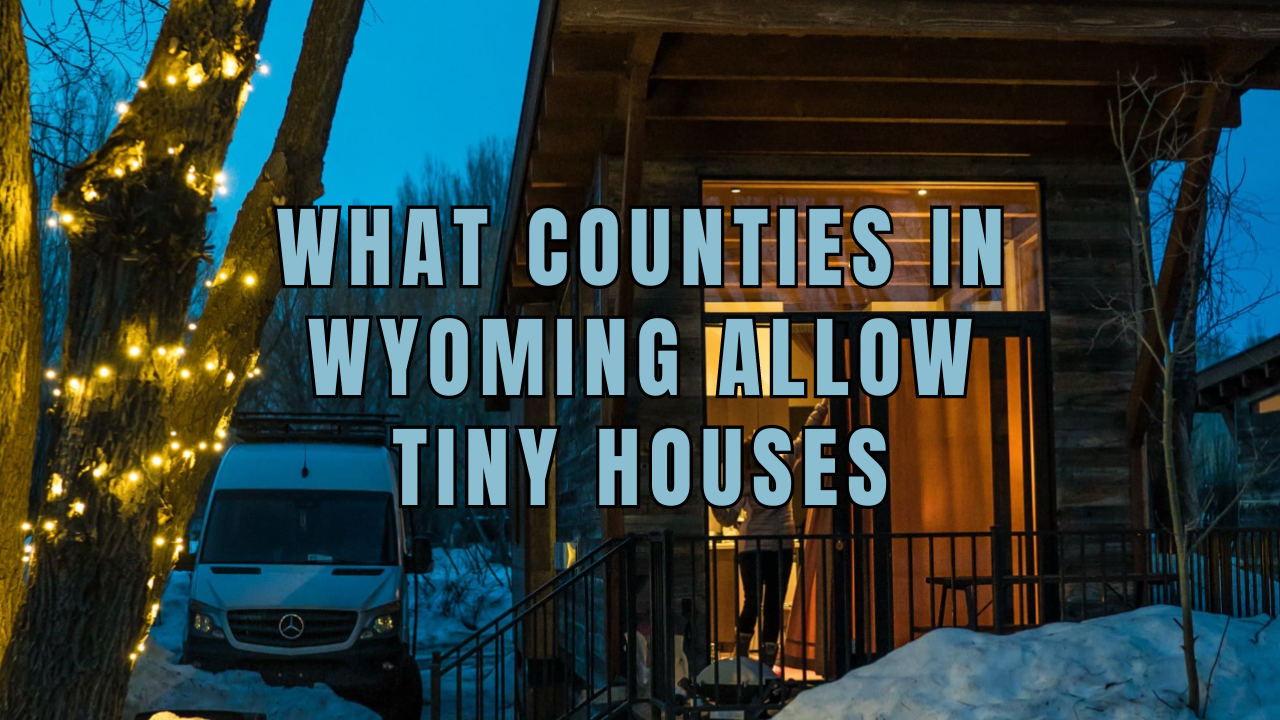As more people look for simpler, more affordable, and more sustainable ways, tiny houses are gaining popularity. These tiny homes aren’t welcome everywhere, though; in some areas, tight zoning and construction regulations restrict their dimensions, placement, and architectural style.
Virginia has several county-specific rules on small dwellings, some are less strict than others. This article will discuss which Virginia counties permit small homes, some guidelines, and requirements to adhere to if you buy a tiny house and join the tiny house movement in this state.
Tiny House Prices in Virginia
Before starting your small house journey, figure out how much you can spend and what reasonably priced tiny home options are available.
Positive updates! We provide a solution that meets all needs and limitations on funds, enabling you to start building your tiny home. View the tiny homes for sale in Virginia!
What Counties in Virginia Allow Tiny Houses?
Several counties in Virginia allow tiny homes and adopted zoning ordinances and building codes to accommodate tiny house living. Other counties may also be open to tiny houses on a case-by-case basis, so check with local authorities before building or purchasing a tiny house.
Fauquier County
If a tiny home complies with state construction regulations, it can be used as an auxiliary dwelling unit (ADU) or as a principal residence in Fauquier County. However, tiny homes on wheels (THOWs) are not allowed.
The tiny house must be a permanent structure with a permanent service connection on a foundation. Additionally, it is required to have a septic system.
Buckingham County
THOWs are legal in backyards and on private land in Buckingham County. You may rent or buy land to park your THOW on, and you can often utilize off-grid toilets like composters.
No inspections are necessary. However, connecting to the municipal sewer system is mandatory. When parking your tiny house for residential use, there is no need to remove the wheels.
Tiny House Regulations And Rules In Virginia
Virginia tiny house laws vary by local jurisdiction. In some areas, tiny houses on wheels are classified as recreational vehicles and may not be permanent dwellings. Other locations may require tiny houses to meet building codes and zoning regulations to be considered legal residences. It is fundamental for those interested in living in a tiny house in Virginia to research the specific requirements of their desired location before making any decisions.
Permanent Structure Rules
Tiny houses that fulfill the criteria listed in Appendix Q of the International Residential Code (IRC) and the Virginia Residential Code are considered permanent constructions in Virginia.
Here are some requirements to follow:
- Your Virginia tiny houses tend to be on lots of at least 320 square feet in size.
- The size of the tiny house needs a minimum square footage of 120 and 400 square feet.
- The accessible rooms have a minimum height of 6’8″.
- One room in your small house has a closet and a window.
- The tiny house must be on a permanent foundation, such as piers or a concrete slab. The foundation must satisfy the load-bearing capacity and stability criteria of the local building regulations.
- The IRC-approved standard emergency exits and rescue apertures are requirements for your tiny home.
Temporary Structure Rules
In Virginia, tiny houses on wheels, or THOWs, are allowed and classified as temporary buildings.
- If a vehicle’s area is less than 400 square feet, it can be registered as a recreational vehicle with the Department of Motor Vehicles.
- Although THOWs are homes, they follow building and habitation requirements.
- THOWs can be parked, but not in commercial parking lots or public areas in Virginia.
Transitional Structure Rules
Virginia’s zoning laws dictate how land is used for development and the habiting of transitional constructions. These laws vary by county and city.
- In Virginia, transitional tiny homes are Accessory Dwelling Units (ADUs).
- These buildings need to be connected to utilities like power, water, and sewage.
In Virginia, Where Can I Build A Tiny House?
Choosing a comfortable location for your tiny home is crucial. Hire a certified small house builder to assist you with the process, do any paperwork, and ensure the house conforms with building codes.
Building a tiny house doesn’t have to be difficult, even if it requires a lot of labor if done correctly. Tiny homes are in the following locations:
- RV parks
- National Parks and campgrounds
- Tiny house communities
- Private properties
Tiny Home Communities in Virginia
Virginia’s tiny house communities are a magnifique alternative for anybody looking for a community of like-minded people because they provide more than ideal sites and supportive neighbors—they offer quick immersion in laid-back tiny house life. Public amenities and services, such as communal gardens, outdoor grilling areas, and meeting places, are available in many communities.
Piedmont Ecovillage
In the Richmond, Virginia, vicinity, Piedmont Ecovillage is an intentional community that is now in the planning stages.
They want to construct a variety of house styles, such as compact, townhome-style, detached single-family, and tiny houses. Passive solar design will be in all constructions to decrease carbon impact.
The goal is to establish a secure and healthy community where neighbors respect each other’s freedom while cooperating for the common benefit. Children may play together with confidence.
Autumn Sun Farm
Autumn Sun Farm is five acres just outside Ashland, about thirty minutes from downtown Richmond.
A carefully planned multigenerational community includes a vast garden, studio spaces, a warehouse, and common areas.
People who like art, music, exercise, and outdoor living are the target audience for this relaxing communal lifestyle.
Surfside at Sandbridge
Surfside at Sandbridge is a Virginia Beach property close to the beach. The resort offers several facilities and lot rentals for short- or long-term stays.
Two swimming pools, a hot spring, a sauna, a gymnasium, a tennis and basketball field, and more are available.
Tiny House Builders Near Me
There’s no need to waste time looking for Virginia small house builders to choose your dream house because Great Lakes Tiny Homes offers a huge selection of tiny houses sent anywhere in the nation.
Great Lakes Tiny Homes builder is approved by the RV Industry Association (RVIA) and specializes in upholding the highest production standards and complying with the strictest safety, legal, and small home construction regulations.
Do I Need a Certified Builder?
You do! You can consider doing it yourself, but be aware of additional hazards and stress.
Buying a tiny house from a builder certified by the RVIA, such as Great Lakes Tiny Homes, guarantees the house complies with all applicable laws and regulations.
Ensuring the safety and durability of the materials in your home can boost your confidence.
Finding an authorized builder facilitates the process of obtaining insurance and financing. Moreover, a tiny house that satisfies RVIA requirements is safe and livable.
FAQs
Can You Make a Tiny Home in Virginia Your Main Residence?
Yes, of course! In Virginia, living in a tiny house permanently is permissible.
Local rules and regulations may be varied depending on where you reside. Check if the tiny house conforms to all relevant rules and regulations, including inspection requirements. Also, you can contact the local administrations and zoning authorities.
Working with Virginia’s certified builders enables a more eco-friendly and laid-back lifestyle.
In Virginia, What Types of Tiny Homes Are Allowed?
Virginia generally allows a broad range of tiny house structures, including backyard cottages, accessory dwelling units (ADUs), RVs and camper vans, tiny houses on wheels (THOWs), and even independent residences built on their private property.
Do a site-specific investigation into your local building standards and regulations to find the types of tiny homes you may build in certain zoning regions. However, some cities and counties only authorize a single form of a tiny home.
Is Tiny House Legal in Virginia to Build it in My Backyard?
Adherence to Virginia’s tiny house regulations is essential to prevent issues later. We advise speaking with the zoning or planning authority to ensure your construction is legal.
Nevertheless, some Virginian counties allow you to build and place a tiny house as an auxiliary dwelling unit (ADU) in your backyard.
Conclusion
Virginia takes a decentralized approach to tiny homes, with local and county laws and ordinances differing. Before moving further, potential tiny home residents should research and get familiar with all relevant building and zoning rules. The state’s acceptance of small houses as an alternative to traditional housing options shows the rising popularity of basic, minimalist living.





